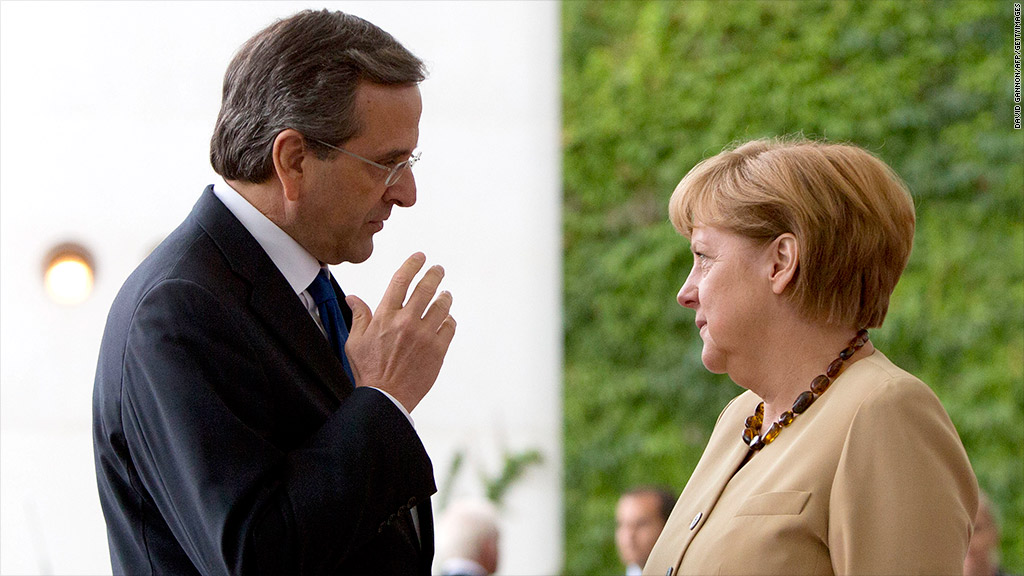
Greek Prime Minister Antonis Samaras said Friday that Greece wants to "stand up on our own feet" as he seeks to negotiate some breathing room for his debt-stricken government.
Samaras made the remark after meeting with German Chancellor Angela Merkel in Berlin. Samaras is set to meet Saturday with French President François Hollande.
Eurozone leaders have indicated that any concessions for Greece will not be made until after a report on the nation's finances is complete next month.
"We don't like having to depend on borrowed money," said Samaras, who hopes to extend the nation's bailout program by two years to give Greece more time to implement difficult reforms. But he stressed that Greece is up to the challenge and that his three month-old government will "bear results."
Samaras said he was "certain" that the report by officials from Greece's international lenders, known as the troika, will demonstrate his government's resolve.
Merkel said she is "absolutely convinced" that Samaras and his partners in Greece's coalition government are doing everything they can to solve the nation's economic problems.
The chancellor said twice that she wants Greece to remain a member of the euro currency union. But she also argued that the euro crisis stems from a lack of trust, which she said must be rebuilt.
"I have made clear today that we absolutely expect from Greece that the promises which were made will also be kept, and implemented," said Merkel. "That actions will follow their promises."
Greece has been at the center of Europe's long-running debt crisis, which is now threatening to envelop Spain and Italy.
Related: Europe's unstable hammock
Even after a historic restructuring in March, Greece is still struggling to cope with a punishing debt load as its economy remains mired in a years-long recession. Many investors and economists believe there is at least a 50% chance that Greece will leave the currency union, or be forced out, this year.
Samaras was elected in June following one failed elections that highlighted the deep resentment Greeks have toward the austerity measures that are the price of Greece's financial rescue.
To make the reforms less painful, Samaras is hoping to get an extension of the bailout program that Greece agreed to under pressure in March.
An extension is possible, but it's unlikely that Germany will agree to provide any additional bailout money, said Anatoli Annenkov, an economist at Societe Generale.
"There is no appetite for providing more money to Greece," Annenkov wrote in a note to clients, adding that Samaras has suggested other means to cover an expected €20 billion budget gap. "This should be sufficient to keep Greece out of the headlines, at least until the German elections next year."
Related: Everything you need to know about where things stand in Europe
Greece is widely believed to have gone off-track with its program following the political turmoil of this year's elections, which left the nation without a fully-functioning government for weeks.
However, Samaras and his coalition partners have reportedly identified the roughly €11 billion in additional budget cuts that it needs to secure the latest installment of bailout money.
Troika officials are set to return to Athens in early September to complete their review. That means eurozone finance ministers will probably not make a decision on Greece's bailout money until they meet on October 8.


